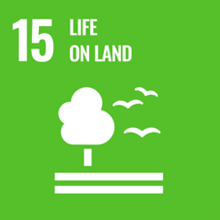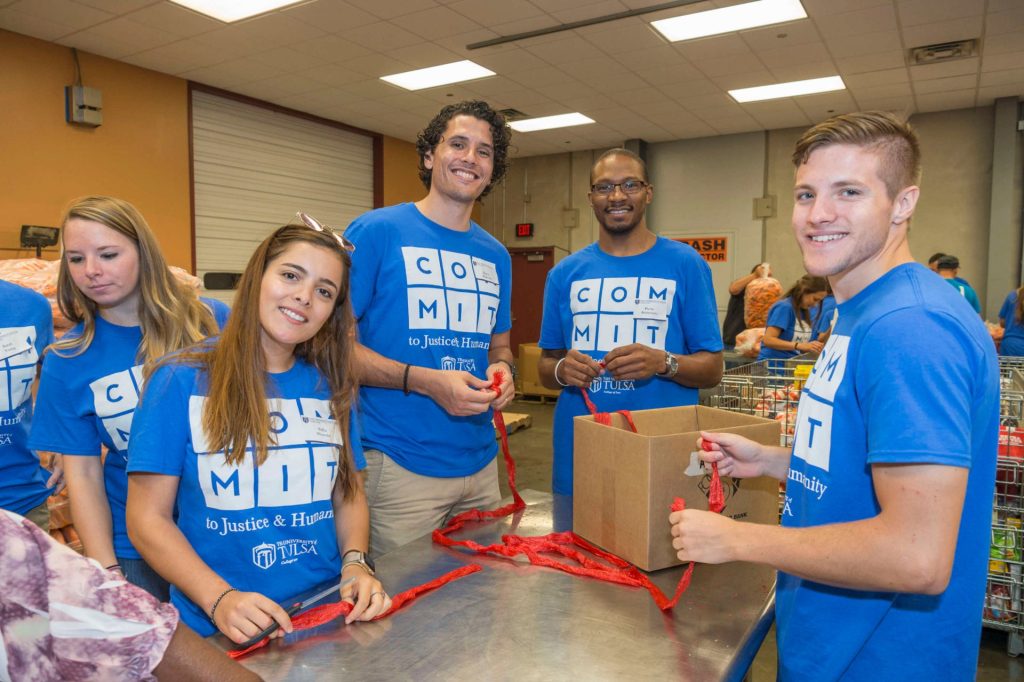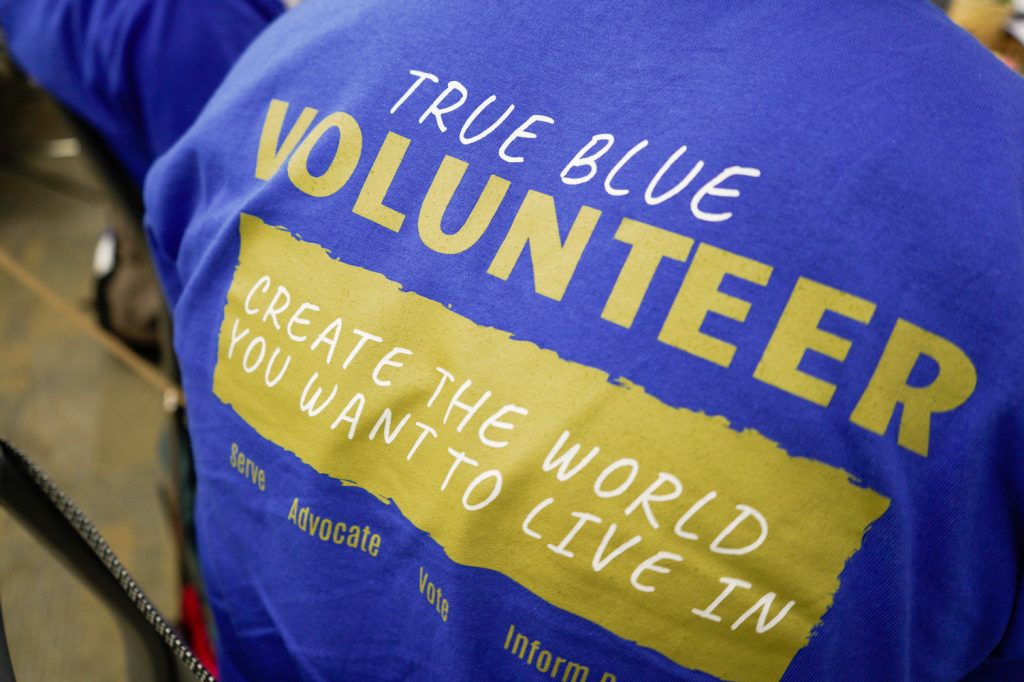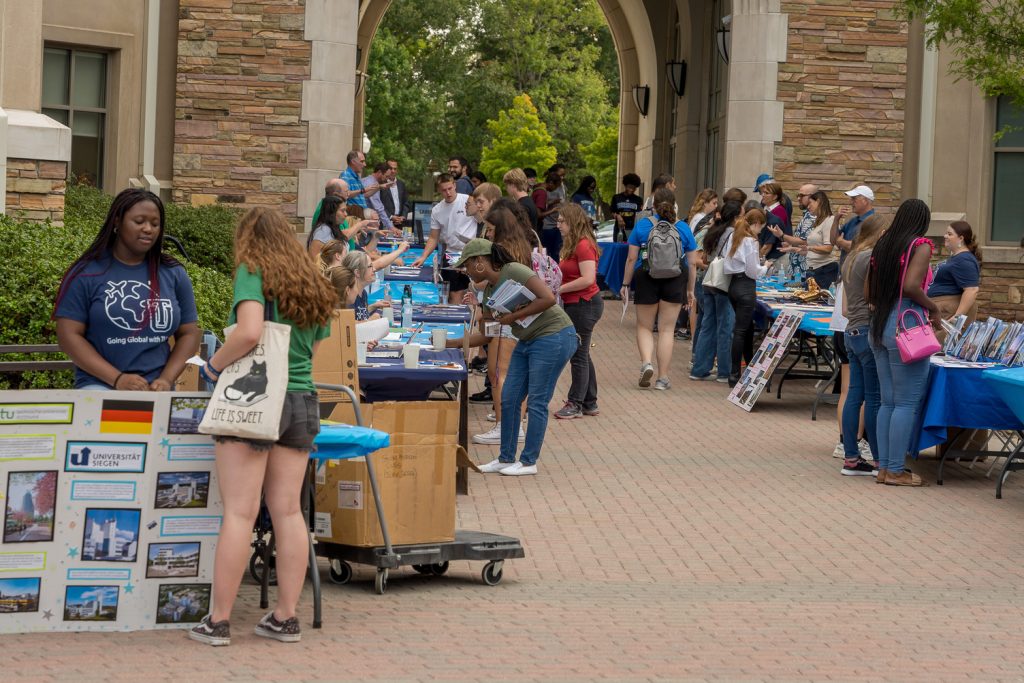
Protect, restore, and sustainably manage terrestrial ecosystems, forests, and biodiversity
This goal emphasizes the critical need to protect and restore the health and productivity of the world’s terrestrial ecosystems. Achieving this goal is essential for safeguarding biodiversity, preserving natural resources, addressing climate change, and ensuring a sustainable future for current and future generations. It recognizes the interconnectedness of land-based ecosystems with broader sustainability efforts, including clean water, climate action, and poverty reduction.
While the University of Tulsa may not have direct influence over large-scale terrestrial ecosystems, it contributes to SDG 15 in several ways:
- Research and Education: Engage in research and educational initiatives related to terrestrial ecosystems, biodiversity, and conservation. Faculty and students can study and raise awareness about local and global ecological issues.
- Environmental Courses and Programs: Offer academic programs and courses in environmental science, ecology, conservation biology, and related fields to educate students about the importance of terrestrial ecosystems and biodiversity conservation.
- Sustainable Campus Practices: Implement sustainable campus practices, including landscaping and grounds management, that prioritize the conservation of local flora and fauna. This may involve native plant landscaping, wildlife habitat preservation, and reducing pesticide and herbicide use.


- Partnerships and Outreach: Collaborate with local or global conservation organizations, parks, and nature reserves to support conservation efforts, raise awareness, and engage in outreach and education activities.
- Student Engagement: Encourage student-led initiatives, clubs, and organizations focused on environmental conservation and restoration, providing opportunities for hands-on involvement.
- Awareness Campaigns: Raise awareness among students and the campus community about the importance of terrestrial ecosystem conservation through educational programs and events.
- Sustainable Land Use: Incorporate sustainable land use planning principles in campus development, preserving green spaces and minimizing ecological disturbance.
- Community Engagement: Engage with the local community to promote conservation practices, collaborate on restoration projects, and share knowledge and best practices.
- Climate Change Education: Integrate discussions about climate change and its impact on terrestrial ecosystems into relevant courses and programs, emphasizing the interconnectedness of SDGs.
While TU’s direct impact on large terrestrial ecosystems may be limited due to its location, its contribution to SDG 15 lies in its ability to educate and raise awareness about terrestrial ecosystem conservation, foster research and innovation in related fields, and promote responsible practices among its students, faculty, and staff. By instilling a sense of responsibility for the environment and terrestrial ecosystems, TU indirectly contributes to the global effort to protect and sustain life on land as outlined in SDG 15.

Support and organize events aimed to promote conservation and sustainable use of land.
Implement policies to ensure the conservation, restoration and sustainable use of land ecosystems associated with the university.
Offer educational programs and outreach on sustainable management of land for agriculture and tourism.
2018-2022 Research
3
Total Scholars
45
Total Publications
News
- University of Tulsa students enrolled in Seminar in Energy Management traveled to Aberdeen, Scotland, in May to see how one of the world’s energy hubs is maintaining its position as […]
- The University of Tulsa has established a new partnership with Universidad de Piura (UDEP) in Peru, with the signing of a memorandum of understanding and student exchange agreement this week. […]
- University of Tulsa faculty member Mohamed K. Fakhr has been awarded a two-year, $300,000 grant from the U.S. Department of Agriculture to study foodborne pathogens in meat and poultry products. […]
- The United States has a better energy infrastructure system than other places across the globe, but it still has room to improve, according to the president and chief executive officer […]
- When Warigia Bowman observes how climate change is affecting the American West, two things come to mind. First is the obvious: Drying and warming conditions in Western states and the […]
- Resources, Energy and Environmental Law Society The stated mission of the Resources, Energy and Environmental Law Society (REELS) are “to promote the interests of conservation of energy and natural resources, […]
- As the need for community outreach increases, Student Association president Kareem Ihmeidan seeks to establish a new campus-wide initiative in partnership with True Blue Neighbors.
- Global Scholars students recently developed a toolkit and volunteered their time to help boost COVID-19 vaccination rates in rural Oklahoma.
- In August, Jorge Roman-Romero will join Midwest Environmental Advocates as an Equal Justice Works Fellow, where he will advocate for disadvantaged communities in Wisconsin dealing with contaminated water.
- Operating remotely, TU’s chapter of Engineers Without Borders USA led the implementation of a latrine/shower project in Bolivia to help provide sanitation to a small agricultural community. The project left […]